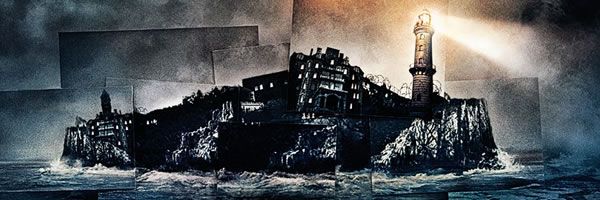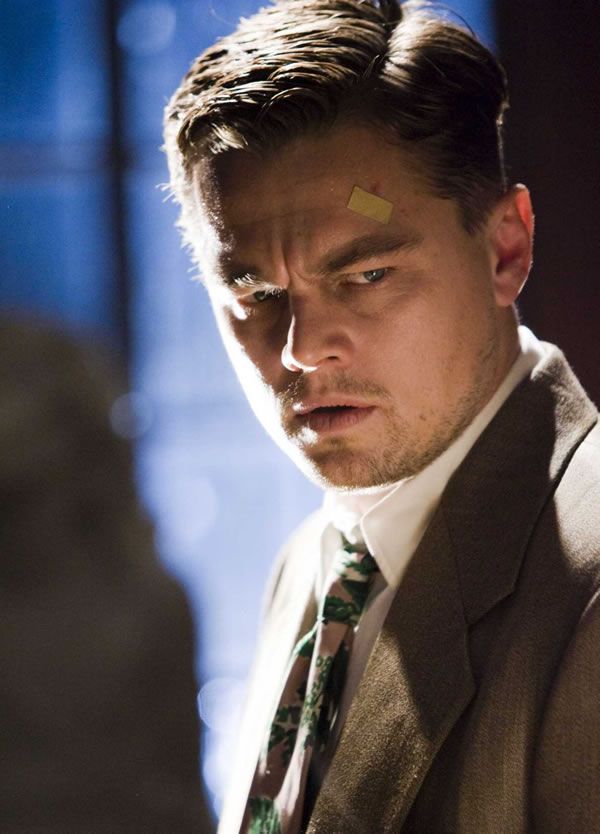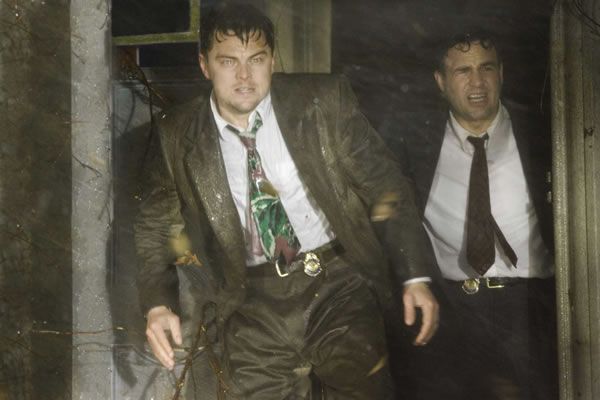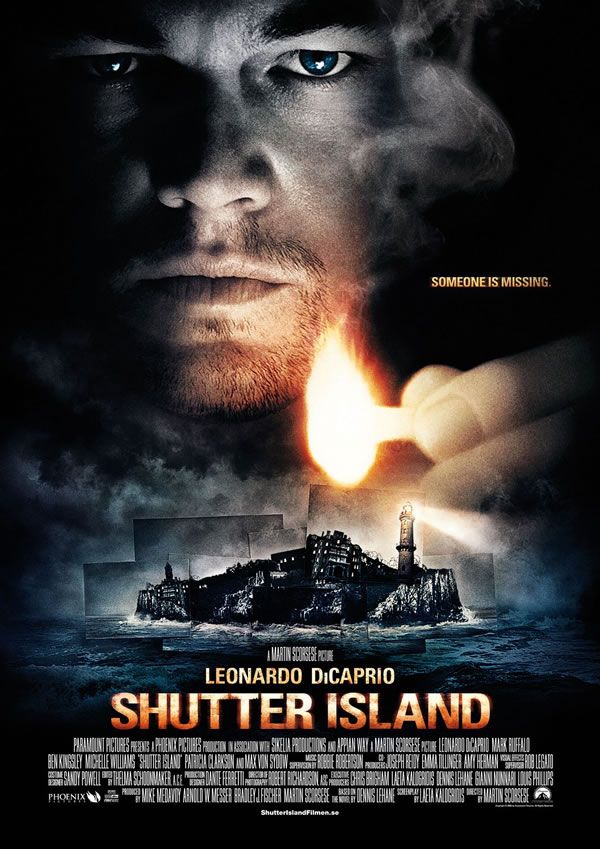Martin Scorsese's Shutter Island is not about solving a mystery. It's about solving madness. The legendary director's latest film is a gothic horror that intrigues without deception, scares without shocks, and weaves a beautiful tapestry of haunting insanity without ever relying on twists and last-minute reveals. Once again, we see that Martin Scorsese cannot be predicted beyond an expectation of crafting a great film. By combining breathtaking technical work with memorable performances, Scorsese has added yet another film to his list of cinematic achievements.
Set in 1954, Federal Marshals Teddy Daniels (Leonardo DiCaprio) and Chuck Aule (Mark Ruffalo) are assigned investigate the disappearance of inmate Rachel Solando (Emily Mortimer) from the Ashecliff Mental Asylum for the Criminally Insane located on Shutter Island. But before they even step off the ferry, we know all is not well with Teddy. Suffering from seasickness and dark memories of his dead wife Dolores (Michelle Williams), it's clear that while Teddy may be our protagonist, he's damaged and we can't entirely trust him. An intense, compelling performance from DiCaprio pulls us in different directions as it's difficult to discern if his urgency is a result of his own trauma or the sinister vibe from the guards, nurses, orderlies, and chief psychiatrist Dr. Cawley (Ben Kingsley). As the story progresses, Teddy's nightmares and hallucinations become stronger and his investigation into Solando's disappearance yields more questions than answers.
At first glance, Shutter Island may seem like a twisting narrative that refuses to play fair with the audience, but it does the complete opposite. We're left guessing not because Scorsese's refusing to show us key elements, but because we're following an unreliable protagonist and see everything as he does. The mystery of Shutter Island isn't what happened to Rachel Solando, but how far can we trust Teddy Daniels? Traversing the island, we see a twisted landscape of falling trees, jagged cliffs, hidden caves, an old civil war fort that houses the most dangerous inmates, and a lighthouse where lobotomies and surgical experiments may be occurring. There are no easy answers on Shutter Island but there aren't any tricks either.
Scorsese drenches Shutter Island in madness but not in the clichéd ways of overt, distracting symbolism or epilepsy-inducing camerawork and editing. Instead, he and cinematographer Robert Richardson compose beautiful, haunting shots where everything drifts down from the heavens. We experience the ashes of his torched apartment, the snowflakes falling on the corpses Teddy saw when he liberated Dachau, the leaves and rain crushing down from the hurricane that keeps Teddy and Chuck captive on the island. It's an ethereal world of deterioration, submersion, and fire.
Counter-balancing surreal cinematography is Thelma Schoonmaker's editing, which keeps the film off-kilter. She removes frames, cuts into dreams, but always puts the atmosphere beyond all else. The Oscar-winning editor understands that this is the world as Terry perceives it, not one that's meant to deceive, spook, or confuse us with trick cuts. The film does run slightly longer than it needs to, but the cutting of the individual scenes always fits the mood whether it is urgency, tragedy, obsession, or whatever else the story demands.
Known as a master of using music to elevate his movies, Scorsese pulls off one of his most difficult and impressive aural accomplishments to date. The eclectic soundtrack features music by Brian Eno, Johnnie Ray, Max Richter, and more. The film opens with the bold, oppressive "Fog Tropes," and without Scorsese's complete confidence and command of every other element of his film, this tune along with many others would feel corny and overbearing.
Shutter Island rests on DiCaprio's talent as much as it does Scorsese's. DiCaprio was one of the strikes against Gangs of New York, the actor's first collaboration with Scorsese. Eight years later, he has grown into one of the most talented dramatic performers in Hollywood. This statement may feel condescending, but watching DiCaprio in Shutter Island, I felt like the baby-faced actor finally looked like a man. The moustache he wore when portraying Howard Hughes in The Aviator made the actor look comical. As Teddy Daniels, DiCaprio looks worn, beaten, and has the gaze of a man who's seen too much but fears what fresh hells he will discover. With Shutter Island, DiCaprio gives the best performance of his career to date.
DiCaprio may hold center stage, but every actor does an outstanding job. Patricia Clarkson, Elias Koteas, Ted Levine, and Jackie Earle Haley only have one scene each and in a lesser picture, any of them could have stolen the entire movie. Instead, they contribute to a cast where you feel that every actor is giving their all and attempting to show us a side we've never seen from them before. We have no one to trust and it's a testament to the abilities of actors like Sir Ben Kingsley that we don't know whether to side with Teddy's suspicion or trust the emotionally-removed employees of Ashecliffe. DiCaprio leads the pack, but every actor in Shutter Island keeps you guessing.
Shutter Island exists on the edge of a knife and rather than fall into genre conventions or into endless homage, Martin Scorsese carves his movie into something singular and unforgettable. Every element had to work to make this film a success. Any flawed element, from a weak supporting performance, to a cheap narrative trick, to an indecisive music cue, and we'd lose the illusion. Instead, Scorsese transports us to a world that's both captivating and claustrophobic. It's a psychological horror where we're scared by what's presented yet terrified at what lies in the periphery. How dangerous are the inmates imprisoned in the old fort? Are the doctors of Asheville finding new ways to discover the cruelty man can impose on others? Which is more horrifying: that they're all really out to get you or that you believe they are?
Welcome to the madhouse. You'll enjoy your stay.
Rating: A





